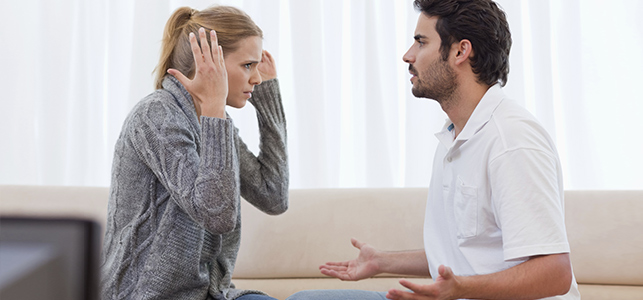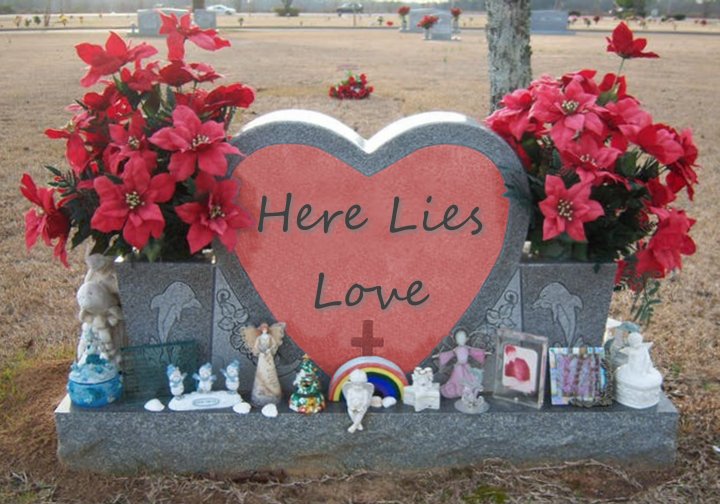Physical abuse is fairly easy to diagnose, while on the other hand, emotional abuse is more vague and can be confusing for someone who is not experienced in determining what is emotional abuse.
Physical abuse and emotional abuse share the same cycle of abuse. In this way, they are similar, though emotional abuse is often confused with difficult communication which is a necessary component in a successful relationship. It is important (non-abusive and respectful of the relationship) to understand what constitutes emotional abuse.
The effects of an emotional abuser often go unnoticed at first and build over time in a relationship, until it finally dawns on the victim that emotional abuse has occurred. Also, it is so easy to jump to a conclusion when your partner suddenly says or does something that you don’t like, then to accuse them of emotional abuse. Doing so would be a form of emotional abuse. ‘Ere the need to have your wits about you and know what is and what is not emotional abuse.
What is Emotional Abuse?
Emotional abuse comes in basically four categories, disrespect, controlling, accusatory, and isolative.
Disrespect
Disrespectful emotional abuse includes an underlying tone which threatens how you feel about yourself, is often critical, makes you feel valueless, or humiliated. Some of the verbal tools used by the emotional abuser may include words like, stupid, idiot, or retard.
They will assault your character, call you childish, or when they don’t like what you’re saying or doing, challenge you to, “act like a grownup,” suggest you, “put on your big boy pants,” or, “man up.”
They will take pot shots, embarrassing you in public, are sarcastic, insulting, and make you the brunt of their jokes in public. Off-screen, they assure you they were just joking, so you shouldn’t take it personally. After all, he or she was just having fun (at your expense).
They are patronizing, like, “Oh don’t worry your little self. No one would expect too much from you. You’re just doing the best you can with what you have.” Possibly accompanied by an eye-roll or some other gesture which communicates exactly how disrespectful they are being.
They push your buttons, to make you fly off the handle, then accuse you of lacking sanity or self-control.
And the worst of them are loud. They raise their voices, assert threatening postures, and/or other body language to intimidate or threaten you.
Controlling
Threats are a huge component for controllers. They will threaten to take off with your child, harm you (fully awake or in your sleep), your family, your friends, or pet, and if that doesn’t work, they may threaten to engage in self-harm or threaten to commit suicide to get you to comply with their demand, or threaten to leave and abandon you.
They need to know everything about you all the time; what you’re doing, where you’re doing it, in the presence of whom, and for how long. Often demanding a minute by minute play by play reporting. Any lack of verifiable evidence is cause for suspicion and false accusations, putting you on the defensive.
They are paranoid, always suspicious, and are susceptible to spying, digital monitoring, may even demand access to your phone, social media accounts, browsing history, and email.
They make promises they have no intention of keeping, and make decisions without consulting with you, which may include making plans, canceling plans, making financial decisions, or any other method of usurping their control over you with no regard for you or your input.
They go on and on, lecturing you to utter boredom, when all you can do is hear the dull roar of a sociopathic monologue, then they get mad and attack you because you’re not paying attention.
Controllers bark their demands, then expect you to “snap to,” in complete compliance without questioning their authority.
Expect controllers to suddenly blow up or emotionally explode when you forget the slightest detail of any demand they may have had (then brace yourself for another lengthy lecture or a laundry list of threats).
Trying to accommodate a controller might be enough to drive you crazy because they will be so constant and relentless with their demands and expectations, that no normal person could possibly keep up with it, which makes you inadequate in their eyes, and they won’t be shy about letting you know that you let them down, reminding you of your shortfalls periodically along the way.
Accusatory
You are to blame for everything while they remain superior and flawless. Better get used to everything being your fault.
They excel at being green monsters of jealousy with the potential to go into an accusatory rage because you are an unfaithful cheater and cannot be trusted.
They will flip any unfortunate circumstance to be your fault, even if it was clearly their doing that presented the difficult situation.
Do not accept any responsibility from the accusatory emotional abuser because they never do anything wrong. If it’s not you they are blaming, it’s someone or something else. They are always the victim.
If you try to get them to own up to their abuse, oh no, it’s not their being abusive, it’s you who is the abuser. Wake up and get it straight.
You will always be indebted to them so they can use guilt to persuade you to comply because of what they did for you, and you owe them.
And if you caught them red-handed in the act? Nope. Didn’t happen. They weren’t even there and had nothing to do with it. It’s all just your jealous overactive imagination and unbridled insecurity which makes you crazy and delusional.
Isolative
They will create a social vacuum for you to exist within, where nothing else exists except for you and the emotional abuser. Say, “goodbye” to family and friends because the emotional abuser wants you totally dependent on him or her for any of your needs.
And your needs will never be as important as the emotional abuser’s needs, so don’t expect many of them to be provided because his or her needs will always come before yours.
The emotional abuse will be framed in a construct of militaristic restraints. You will be expected to comply with your emotional abuser’s demands, or else. Not unlike an abusive Drill Sergeant, you are expected to, “Jump when I say jump.” And your response better not be, “Why?” It better be, “How high?” followed by your body being in the air or else you will suffer the consequences.
Alternatively, the isolative emotional abuser will isolate you from him or her, punishing you by cutting you off, ignoring you, refusing to communicate with you, or withholding positive attention, intimacy, or sex.
If you try to express your concerns, they will belittle you, accuse you of being needy or immature. If you react by responding emotionally or be moved to tears, they will not acknowledge your feelings and ignore or act annoyed by your being emotionally expressive, which is clearly unacceptable behavior.
What is not emotional abuse?
Emotional abuse is not your partner’s response which is not what you want to hear. Everyone is different, we all have our own ideas about what we want and how we expect to be treated in a relationship. You must respect your partner’s right to express him- or herself in any way that works for him or her.
Disagreeing, arguing, even fighting amongst couples is not necessarily emotional abuse even though it can cause you emotional pain. Difficult conversations even fighting are necessary parts of a deeply personal relationship between two different people.
When someone asserts how they feel, which may be blunt, and can potentially hurt your feelings, try not to take it personally. Everyone is entitled to feel how they feel, and you should feel blessed that they feel safe enough to let you get access to these deepest parts of them which are probably hidden from others in their life.
Yelling does not indicate emotional abuse, although a hysterical emotional outburst would probably be a tool used by the emotional abuser. In a healthy relationship, if someone temporarily loses emotional control, a healthy couple will take a break, allow the emotions to calm, then talk it out.
Raising one’s voice can be a learned method of communication for expressing one’s self. As this person grows, he or she might be able to learn new methods of communication as you grow as a couple and learn more positive forms of communication.
Unless it is a threat used to control you, it is not emotionally abusive to end a relationship. This happens and should be honored, with as much grace as your ability to muster, even though it may feel as if it is devastating.
Healthy communication is the holy grail of successful relationships.










